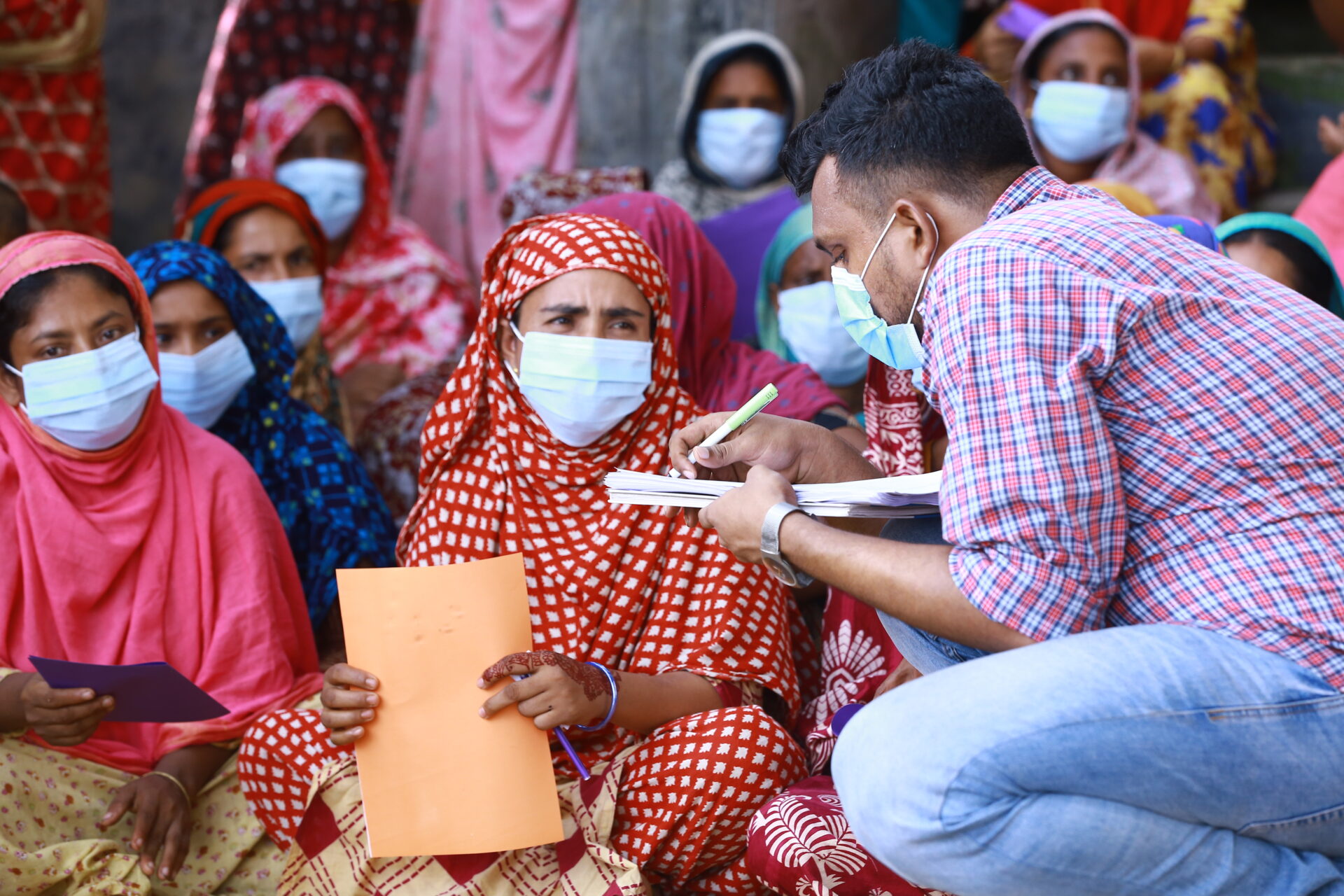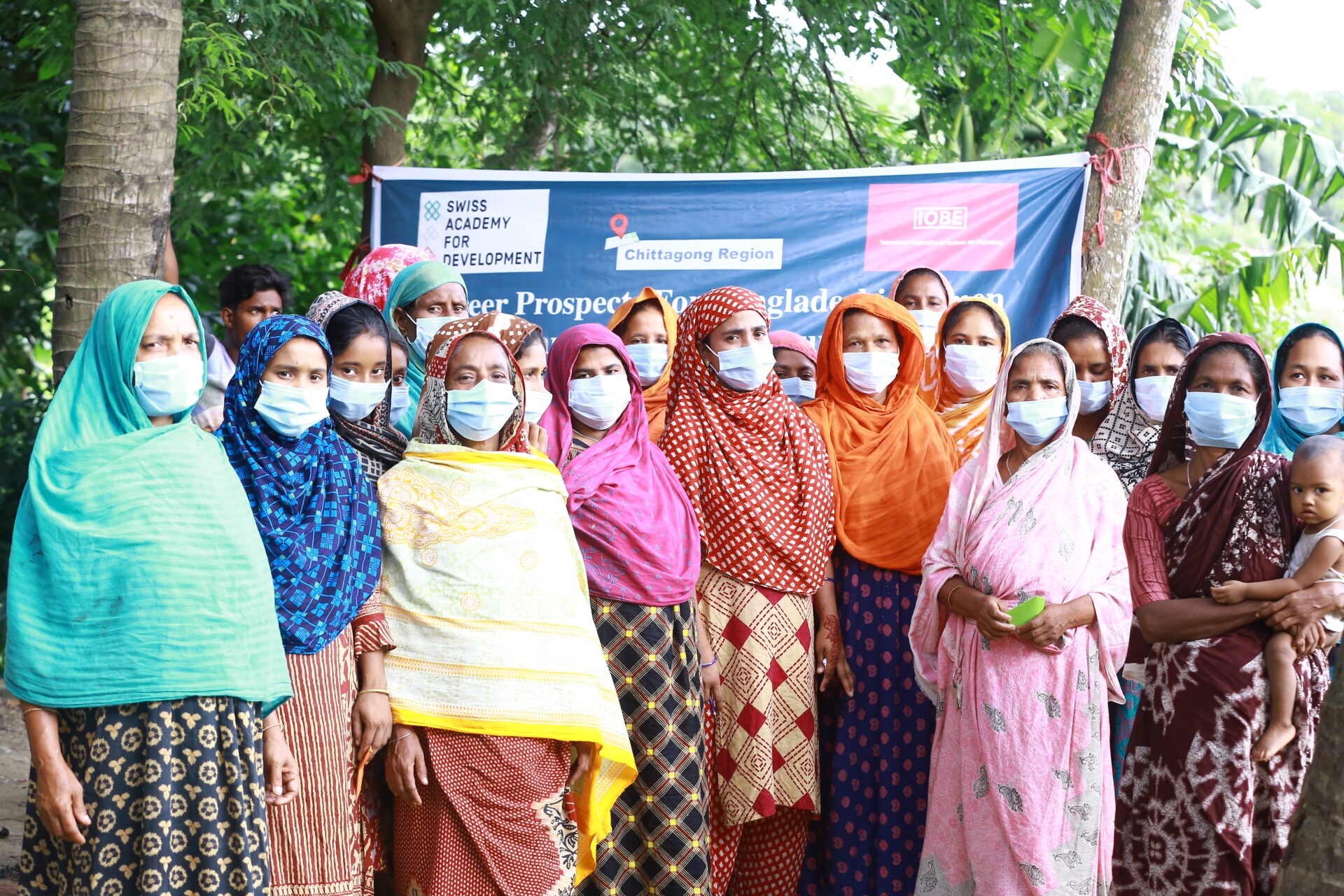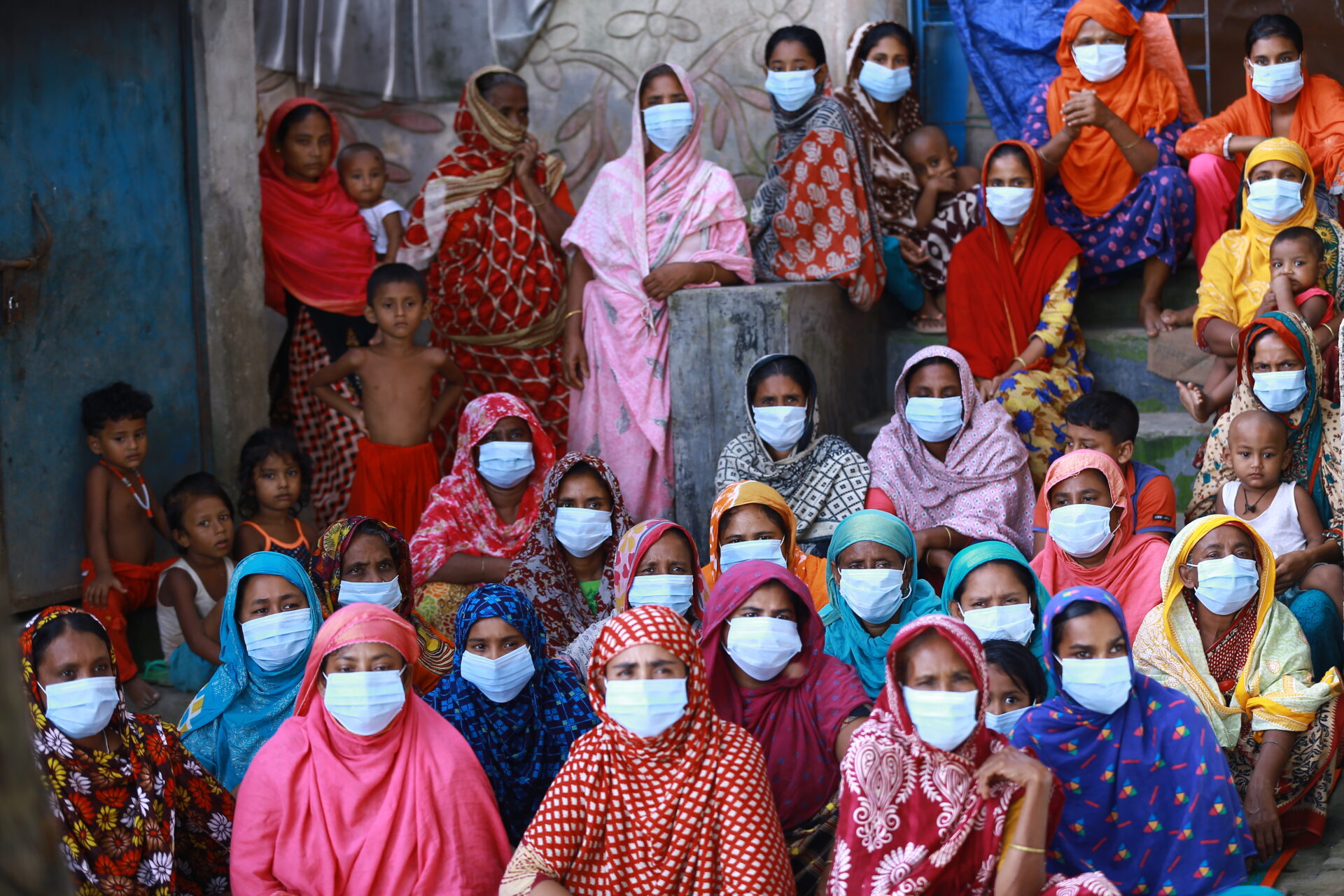The project "Let's get to Business" has been running in the Chittagong area of Bangladesh since 2019. With our local partner organisation, the International Organization for Business and Engineering (IOBE), Bangladeshi women in rural areas are empowered through entrepreneurship. Riad Raduanul Alam, project associate at IOBE, explains to us in an interview how COVID-19 is influencing the training.
Through the project, 150 jobless or underemployed women are empowered through training, start-up funding or mentoring to successfully start and run small and micro enterprises. Their future prospects and living situations improve significantly as a result.
SA4D: How long have you been working for IOBE?
Riad Raduanul Alam: I have been working for around eight months with IOBE. It’s a wonderful platform for youth all over the country and also a great opportunity fo me to develop personal and professional skills. I joined as a project associate and am mainly responsible for research on trends and to determine the economic impact. I develop and manage project documents, strategize for contingency planning and risk mitigation. Apart from that, I also schedule and coordinate video conferences, speaking engagements, programmes and meetings. Managing and monitoring the project team is also on my agenda.
How has the COVID-19 pandemic affected IOBE, your work and the training workshops in Chittagong in recent months?
IOBE always has a backup plan to recover from different unexpected situations. Despite the COVID-19-pandemic, our work procedures remain the same with some protective measures. Some of our projects have had to be paused. Our priority is to ensure the safe and successful implementation of the ongoing projects. In the beginning, we faced some challenges in a training session – people were not aware about COVID-19. Now, at the beginning of each training, we raise awareness, make sure that the participants maintain social distance, and hand out hand sanitizer and masks.
Has there been a switch to digital or blended learning due to the pandemic?
I’m afraid not. We haven’t been able to implement digital learning due to network and electricity issues in rural areas.
Can you tell us more about which training workshops were held? Under what circumstances?
The training session “Career Prospects for Bangladeshi Women through Entrepreneurship” started in 2020. We completed the training successfully, adapting the programme to pandemic measures. IOBE assigned two trainers with their assistant to train the participants about our prospects and goals. The trainers would then teach the session in different locations in the Chittagong region, five in total. Even with restrictions due to the pandemic, we reached out to a total of 151 women.
How do the women use the new knowledge from the entrepreneurship training?
With basic business skills, the women now know how to start a business and make an income. Before the training session, they didn’t know how to generate money from their businesses. Some of them already ran a business but failed to generate revenue in order to build a strong and sustainable business. They are now capable of doing that.
Could you give us an example?
Yes, two women in the programme manufacture and sell Nakshi Katha, a traditional Bengali blanket. They lacked basic management knowledge, so they didn’t make any profit during the last two years despite their hard work. After the training session, they understood where they had to make adjustments, and they now sell their blankets at the bazar.



